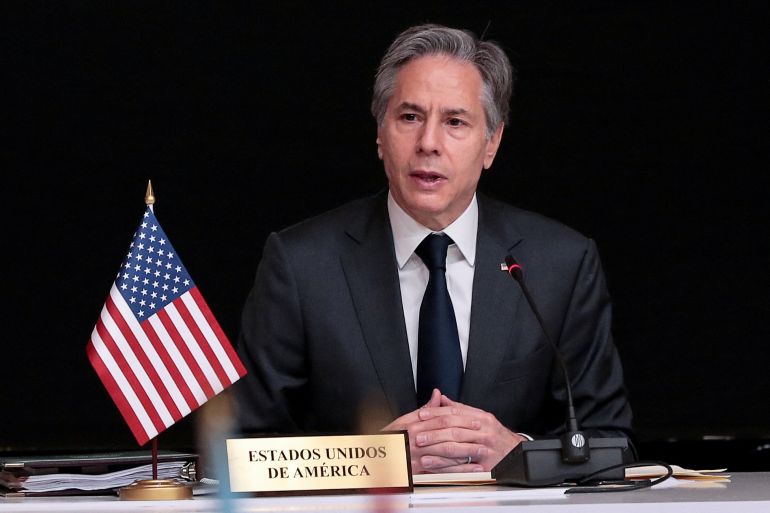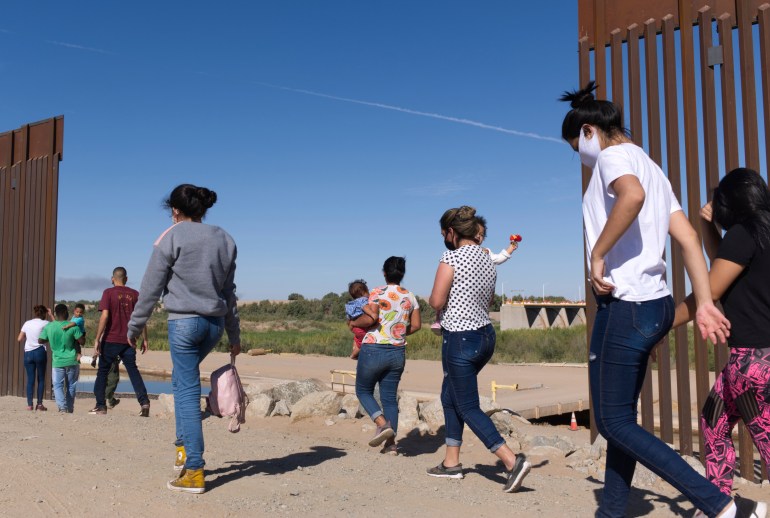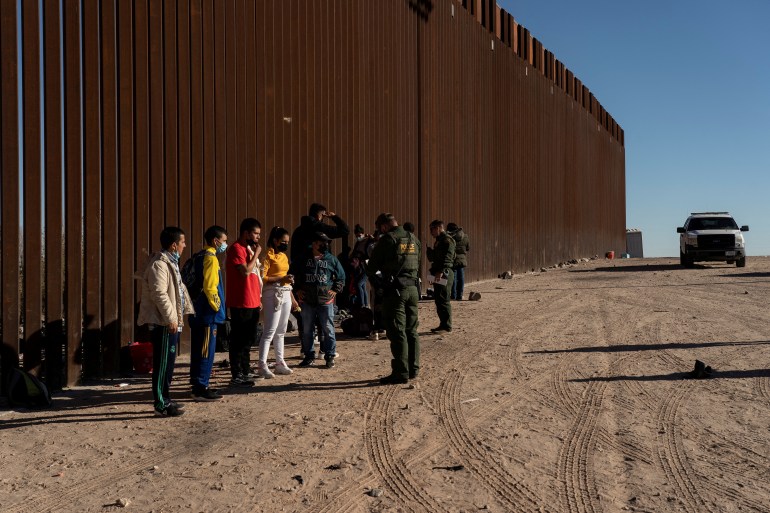US’s Blinken pushes for united, regional response to migration
Secretary of State Antony Blinken urges cooperation as US prepares for an increase in arrivals at its border with Mexico.

US Secretary of State Antony Blinken has called for more regional cooperation in the western hemisphere to tackle record numbers of refugees and migrants, many of whom are headed towards the United States.
Speaking in Panama on Wednesday, Blinken said the main drivers of migration – poverty, inequality and climate change – must be addressed.
Keep reading
list of 3 itemsUS looking for regional help to curb migration at Mexico border
US officials attend migration summit while policies under fire
“This is a challenge that we have to solve together and that was at the heart of our discussions today,” Blinken told reporters, as he attended a two-day summit in Panama City alongside foreign ministers from more than 20 nations.
“Here in Panama we talked about some of the most urgent aspects of this issue including … dealing with the root causes of irregular migration by growing economic opportunity, fighting corruption, increasing citizen security, combating the climate crisis, [and] improving democratic governance that is responsive to people’s needs,” he said.

The summit was held as record numbers of asylum seekers have attempted to cross into the US from Mexico since President Joe Biden first took office in January 2021, promising to overturn his predecessor Donald Trump’s most restrictive immigration policies.
The situation at the border continues to spur criticism from Republican legislators, while Biden has pledged to address the “root causes” driving people to leave their homes.
His administration has secured private-sector investments in Central America worth over $1.2bn, Vice President Kamala Harris announced late last year, and it is now hoping to strike a migration pact at the Ninth Summit of the Americas in Los Angeles in June.
The US also is readying to lift a contentious coronavirus pandemic-era border restriction that allowed authorities to rapidly turn back the majority of asylum seekers coming to the US-Mexico border.
The Biden administration announced on April 1 that it would end the use of the “Title 42” public health order by May 23, a move that is likely to lead to an increase in arrivals.
US officials have said that they are prepared for that potential increase at the border, and would deploy more personnel and expedite processing.

On Tuesday, Blinken and US Secretary of Homeland Security Alejandro Mayorkas met with Panamanian officials and signed a deal detailing commitments to improve the management of migration between the two countries and increase access to legal pathways to immigration.
That agreement came after Panama, Mexico and Costa Rica put stricter visa requirements in place to make it more difficult for Venezuelans and Cubans to transit through their countries towards the US. A similar deal was reached between the US and Costa Rica last month.
Al Jazeera’s Teresa Bo, reporting from Buenos Aires, said Panama since last year has demanded a regional meeting to discuss a surge in the number of people crossing the Darien Gap.
Families who travel through the dangerous jungle passage between Colombia and Panama face the threat of violence and extortion schemes from criminal gangs and other groups. “This poses a major challenge not only for Panama, but also for governments in the region,” Bo said.
She said the meetings in Panama this week signal “a major diplomatic move” by the US, but they are only “a preview” of the larger Summit of the Americas. “Heads of state are going to be present and … migration is going to be a major issue,” she said.
Michelle Mittelstadt, director of communications and public affairs at the Migration Policy Institute, said that regional cooperation and coordination on migration are crucial.
“What’s been seen at the US border with ever-increasing enforcement is that on its own enforcement cannot succeed. We’ve seen surges at the US-Mexico border in 2014, 2016, 2019 and again now,” Mittelstadt told Al Jazeera.
“You cannot solve the border only at the border and there needs to be a holistic approach taken.”